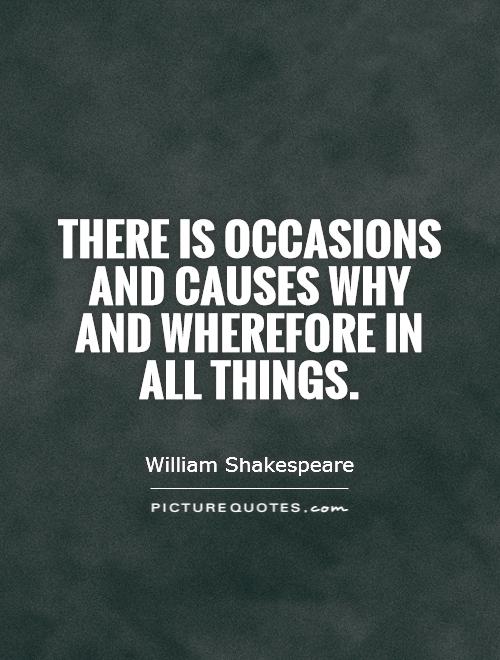There is occasions and causes why and wherefore in all things

There is occasions and causes why and wherefore in all things
William Shakespeare, often regarded as one of the greatest playwrights in history, was a master at exploring the complexities of human nature and the intricacies of the human experience. In his works, he delved deep into the motivations and actions of his characters, revealing that there are occasions and causes why and wherefore in all things.This phrase, "there is occasions and causes why and wherefore in all things," can be found in Shakespeare's play "Twelfth Night." In this play, the character Malvolio utters these words as he reflects on the events that have transpired and tries to make sense of the chaos that has unfolded around him. This line encapsulates a central theme in Shakespeare's works - the idea that there are reasons behind every action, that nothing happens by chance, and that everything is interconnected.
Throughout his plays, Shakespeare explores the complexities of human behavior and the motivations behind people's actions. He delves into the depths of human emotion, portraying characters who are driven by love, jealousy, ambition, and revenge. In "Hamlet," for example, the titular character is consumed by grief and a desire for vengeance after his father's murder. In "Macbeth," the eponymous character is driven by ambition and a thirst for power that ultimately leads to his downfall.
Shakespeare's exploration of the human psyche is not limited to his tragic plays. In his comedies, such as "A Midsummer Night's Dream" and "Much Ado About Nothing," he examines the complexities of love and relationships, showing how misunderstandings and miscommunications can lead to comedic and sometimes tragic consequences.












 Friendship Quotes
Friendship Quotes Love Quotes
Love Quotes Life Quotes
Life Quotes Funny Quotes
Funny Quotes Motivational Quotes
Motivational Quotes Inspirational Quotes
Inspirational Quotes